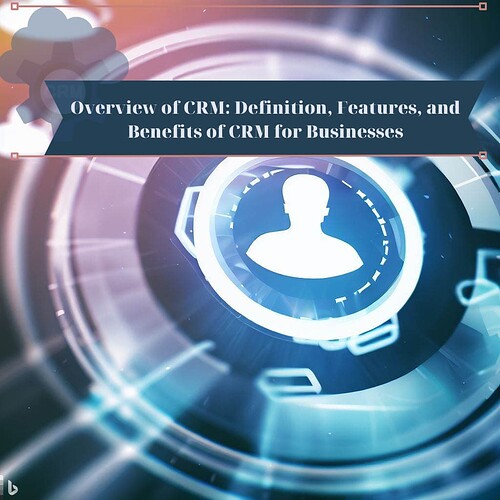In today’s competitive business market, companies are facing many challenges to maintain and grow their business. Especially, customers are becoming increasingly demanding and less satisfied with the products and services of companies. They not only care about the quality of products and services, but also demand businesses to provide the best customer experience possible. To address this issue, CRM (Customer Relationship Management) was introduced as a tool to support businesses in enhancing customer relationships and improving their experience.
What is CRM?
CRM (Customer Relationship Management) is a customer relationship management system that helps businesses effectively interact, manage and analyze information about customers. CRM allows businesses to create business strategies that meet the needs of customers, improve service quality, and increase sales.
Read more: https://cloudgo.vn/phan-mem-crm-la-gi
Features of CRM
-
Customer information management: CRM helps businesses manage detailed customer information, including personal information, transaction history, product information, customer satisfaction level, and more.
-
Customer interaction: CRM allows businesses to effectively interact with customers through various communication channels, including email, phone, chat, social media, etc.
-
Marketing campaign management: CRM helps businesses manage marketing campaigns easily, from creating campaigns, classifying customer segments, to monitoring and evaluating campaign effectiveness.
-
Sales management: CRM supports businesses in managing the sales process, from finding potential customers, classifying customers, consulting and persuading customers to buy products, to managing orders and customer care after sales.
-
Analysis and evaluation: CRM provides analysis and evaluation tools for the effectiveness of marketing campaigns, sales processes, service quality, etc., helping businesses make accurate and effective business decisions.
Benefits of CRM for businesses
CRM helps businesses achieve many important benefits, including:
-
Enhanced customer management: By storing customer information in a detailed and clear manner, businesses can easily access this information to enhance customer management and meet their needs and desires in the best way possible.
-
Improved understanding of customers: With detailed customer information, businesses can access this information to better understand the needs and desires of their customers, and then provide the best solutions for them.
-
Enhanced customer interaction: By storing customer information, businesses can easily access this information to interact and communicate with customers more effectively, helping to build better relationships with customers.
-
Improved ability to reach potential customers: With clear and detailed customer information, businesses can use this information to search for and reach potential customers, thereby improving their ability to access the market and develop their business.
-
Improved access to business information: With clear and detailed business information stored, businesses can use this information to analyze and evaluate business effectiveness, making more accurate and effective business decisions.
-
Reduced customer management costs: By efficiently storing customer information, businesses can reduce customer management costs, thereby enhancing business efficiency and increasing profitability.
In summary, CRM is an extremely important and useful tool for helping businesses manage customers more effectively. With a focus on customers and optimal information management, CRM brings many benefits to businesses, from increasing their ability to access customers and improving customer experiences, to enhancing business effectiveness and reducing costs.
However, to be successful with CRM, businesses need to develop specific plans, choose appropriate software, train their employees, and carefully manage their data. Additionally, they should also be aware of the challenges of implementing CRM, such as difficulties in changing company culture, a lack of support from related departments, or difficulties in integrating with other systems.
Nevertheless, if implemented correctly and achieving expected effectiveness, CRM will become an extremely effective customer management tool, helping businesses grow and develop sustainably in the future.
